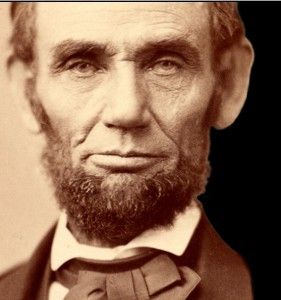 U.S. President Abraham Lincoln‘s program of Southern reconstruction occupies much of his time and thought. Announced on December 8, the now six-week-old effort has proven more successful than many Northerners had hoped, while causing consternation among the political and military leaders of a fraying Confederacy.
U.S. President Abraham Lincoln‘s program of Southern reconstruction occupies much of his time and thought. Announced on December 8, the now six-week-old effort has proven more successful than many Northerners had hoped, while causing consternation among the political and military leaders of a fraying Confederacy.
At the heart of reconstruction is the eradication of slavery and the establishment of equality of whites and blacks. While a young Lincoln’s anti-slavery views were shaped to no small degree by his abolitionist Baptist upbringing in Kentucky and Indiana, many Southern whites, including Baptists, are determined to fight to the end for the preservation of their slave-based Confederacy.
This month Lincoln writes of his motives for Southern reconstruction in a letter to James S. Wadsworth, a New York abolitionist friend, political advisor and Union Army officer.
You desire to know, in the event of our complete success in the field, the same being followed by a loyal and cheerful submission on the part of the South, if universal amnesty should not be accompanied with universal suffrage.
Now, since you know my private inclinations as to what terms should be grated to the South in the contingency mentioned, I will here add, that if our success should thus be realized, followed by such desired results, I cannot see, if universal amnesty is granted, how, under the circumstances, I can avoid exacting in return universal suffrage, or, at least, suffrage on the basis of intelligence and military service.
How to better the condition of the colored race has long been a study which has attracted my serious and careful attention; hence I think I am clear and decided as to what course I shall pursue in the premises, regarding it a religious duty, as the nation’s guardian of these people, who have so heroically vindicated their manhood on the battle-field, where, in assisting to save the life of the Republic, they have demonstrated in blood their right to the ballot, which is but the humane protection of the flag they have so fearlessly defended.
The restoration of the Rebel States to the Union must rest upon the principle of civil and political equality of both races; and it must be sealed by general amnesty.
White Baptists of the South, meanwhile, are placing their hopes in the brave men who are fighting in the Confederate Army and against the abolitionist North. Today’s North Carolina Baptist Biblical Recorder offers yet another article praising Southern soldier and, in particular, the virtues of North Carolina soldiers.
A minister, who has recently returned from a visit to the army of Northern Virginia, gives the following. He called at the house of a gentlemen, stating his name, profession and place of residence, and soliciting food and shelter for the night. The reply was highly honorable to our brave soldiers. “Even if I could turn away a preacher,” said the gentlemen, “I could not refuse to take in a North Carolinian. When the soldiers from your State were encamped on my premises, they committed no depredations. I missed no poultry, hogs or cattle, and though my fences were much nearer than the woods, they invariably left my fences uninjured. I need to tell you that I have received different treatment from the soldiers of other States: nor can I ever forget the gallant North Carolinians.” This is indeed a high compliment to our brave boys, from one who has a right to speak, and we hope they will never prove unworthy of the reputation which they have earned.
Sources: Letter to James S. Wadsworth, ca. January 1864, in Roy P. Basler, editor, in The Collected Works of Abraham Lincoln, Volume VII, New Brunswick, New Jersey: Rutgers University Press, 1953, pp. 100-101 (link); “James S. Wadsworth (1807-1864),” Abraham Lincoln and New York (link); James S. Wadsworth bibliography (link); “A Compliment to the North Carolina Soldiers,” Biblical Recorder, January 23, 1864 (link)


